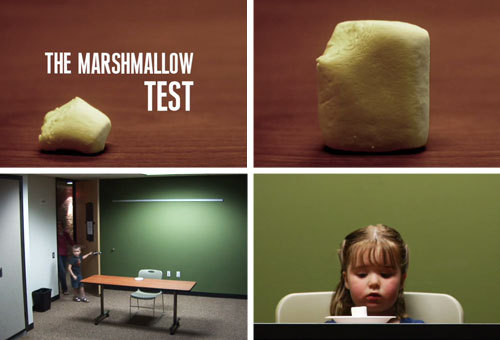The 1972 Marshmallow Experiment;
You may think this experiment sounds familiar, and that’s probably because they use a similar idea on one of the Haribo adverts…
Children between the ages of 4 and 6 were left in a room with a marshmallow on the table, and were told by the experimenter that if they managed to leave the marshmallow alone for 15 minutes, they would get a second marshmallow.
The experimenter recorded how long each child resisted the temptation to eat the marshmallow and later compared it to the child’s success in adulthood – based on SAT scores.
A small minority of the 600 children ate the marshmallow as soon as the experimenter left, and a third of the children resisted long enough to receive the second marshmallow.

In follow up studies it was found that the children who resisted were significantly ‘more competent’ and received higher SAT scores. They concluded that the ability to ‘defer gratification’ is a characteristic that remains with people throughout their life.





